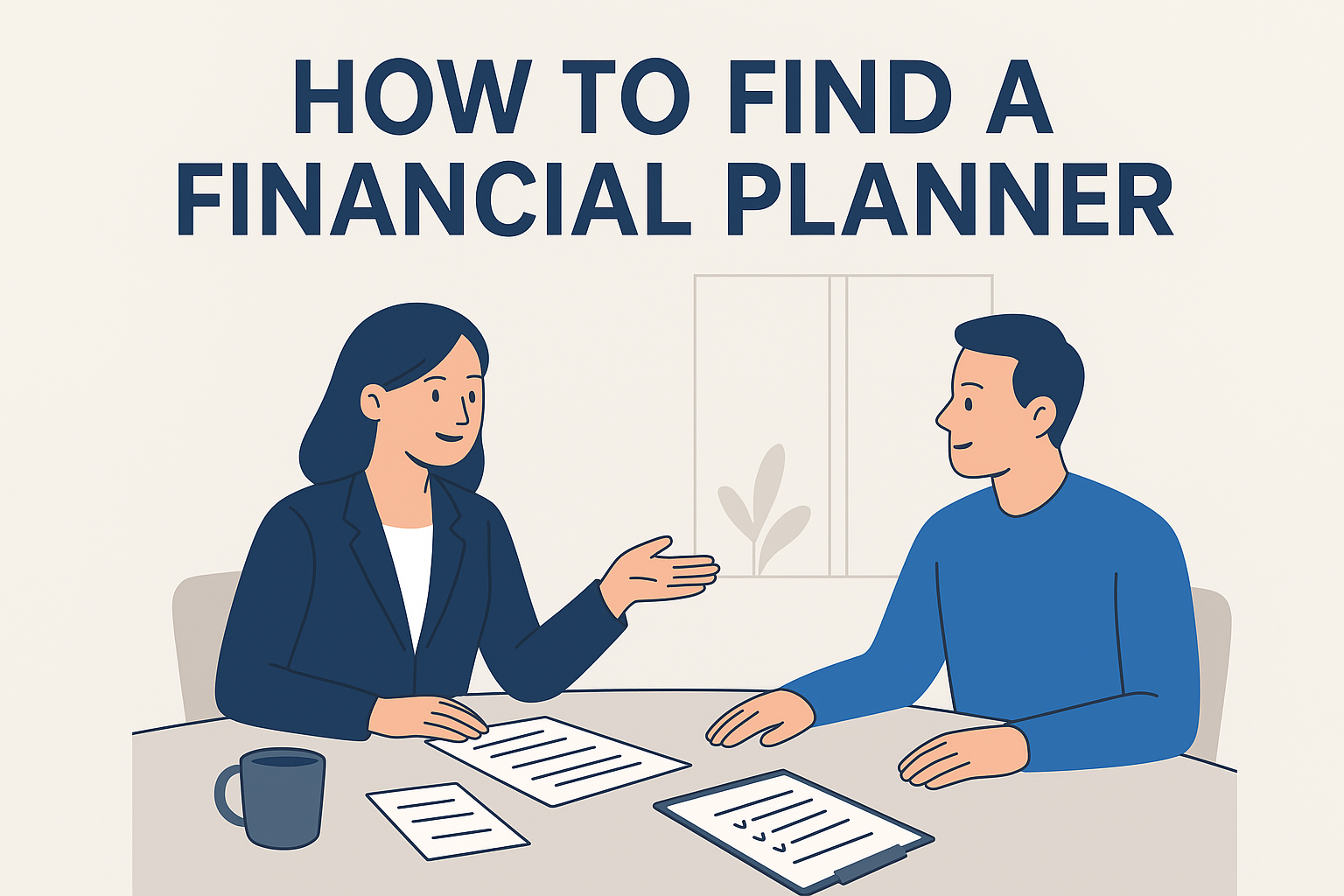When it comes to managing money, many people feel uncertain about where to start. Between saving for retirement, paying down debt, planning for college expenses, and navigating rising living costs, financial decisions can feel overwhelming. This is where a financial planner may be able to provide valuable guidance. But how do you find a financial planner who fits your needs?
The process involves more than just a quick online search. It requires understanding what financial planners do, identifying qualifications, and asking questions. By approaching this decision carefully, you can increase the likelihood of finding someone who aligns with your goals and values.
What Does a Financial Planner Do?
A financial planner helps individuals and families think through their finances in a structured way. The scope of services can vary widely, but many planners assist with:
• Budgeting and cash flow management
• Retirement savings strategies
• Investment planning
• Tax considerations (in coordination with tax professionals)
• Insurance needs analysis
• Estate planning strategies (in coordination with attorneys)
• Education savings options
Not all financial planners provide the same services, so it is important to confirm what a planner actually offers before engaging them.
Step 1: Identify Your Goals
Before you start searching, take time to clarify what you hope to achieve.
• Are you looking for ongoing, comprehensive planning?
• Do you mainly want investment management?
• Is your priority debt reduction, retirement, or estate planning?
Defining your goals helps you narrow down which financial planners may be a good fit. For example, if you are nearing retirement, you may want someone who regularly works with pre-retirees and retirees.
Step 2: Look for Professional Designations
Credentials can provide insight into a planner’s training and areas of focus. Some of the most recognized designations include:
• CFP®: Indicates the planner has completed extensive coursework, passed a comprehensive exam, and agreed to a code of ethics.
• ChFC® (Chartered Financial Consultant): Focuses on comprehensive financial planning through coursework and exams.
• CPA/PFS (Certified Public Accountant/Personal Financial Specialist): A CPA with additional training in financial planning.
While designations do not guarantee quality, they may help you identify individuals who have invested time in education and training.
Step 3: Understand Fiduciary Duty
One of the most important questions to ask is whether a financial planner operates as a fiduciary and in what scenarios. A fiduciary is obligated to put the client’s interests ahead of their own. Some financial professionals operate under a suitability standard, which only requires that recommendations are considered suitable at the time they are made.
Step 4: Research How Planners Are Paid
Financial planners can be compensated in different ways, and the compensation model can influence the services you receive. Common structures include:
• Fee-only: The planner is paid directly by the client, usually through flat fees, hourly rates, or a percentage of assets under management.
• Commission-based: The planner earns commissions from products sold, such as insurance policies or investment products.
• Fee-based: A combination of fees and commissions.
Each compensation model has potential pros and cons. For example, fee-only planners avoid product commissions, while commission-based planners may provide access to certain products but earn money from sales. Understanding compensation helps you better evaluate potential conflicts of interest.
Step 5: Use Trusted Resources to Search
Several reputable organizations provide directories of financial planners. A few to consider include:
• CFP Board’s “Let’s Make a Plan” tool (cfp.net)
• National Association of Personal Financial Advisors (NAPFA), which lists fee-only financial advisors
• Financial Planning Association (FPA), which provides a searchable directory of members
Using these resources can help you create a list of candidates who meet certain professional standards.
Step 6: Conduct Interviews
Meeting with multiple planners before making a decision can give you a better sense of fit. Consider preparing a list of questions such as:
1. What services do you provide?
2. How do you charge for your services?
3. Are you a fiduciary at all times when working with clients?
4. What is your experience working with people in situations similar to mine?
5. What technology or tools do you use to help clients track progress?
Pay attention not only to the answers, but also to how comfortable you feel during the conversation. The relationship with a financial planner can last for years, so it is important that you feel understood and respected.
Step 7: Watch for Red Flags
While many financial planners act with integrity, it is wise to be cautious. Potential warning signs include:
• Promises of guaranteed returns or quick results
• Reluctance to explain fees clearly
• High-pressure sales tactics
• Limited experience or no references
If something feels off, it may be worth continuing your search.
Step 8: Start Small and Evaluate
Once you choose a financial planner, consider beginning with a smaller engagement, such as a one-time financial plan, before committing to a long-term relationship. This can give you a sense of their process and communication style without a major initial commitment.
Over time, you can evaluate whether their approach aligns with your needs and whether you want to expand the relationship to include ongoing planning or investment management.
Why Finding a Financial Planner Matters
A financial planner can play an important role in helping you think through complex decisions about money. From retirement planning to managing debt, sound guidance may help you approach your finances with more confidence and clarity.
However, finding sound planner is not about picking the first name that comes up in a search. It involves defining your goals, researching qualifications, asking detailed questions, and paying attention to how the planner communicates.
By taking a thoughtful approach, you increase your chances of finding a financial planner who understands your priorities and works with you to create a strategy that fits your life.
Conclusion
Choosing a financial planner is a significant decision that requires careful consideration. By clarifying your goals, reviewing credentials, understanding compensation, and conducting interviews, you can better identify someone who aligns with your financial needs.
Financial planning is not one-size-fits-all. What works well for one person may not fit another. The most important step is to take the time to find a professional who listens to your concerns, respects your goals, and provides advice tailored to your circumstances.
Sources
1. CFP Board. “Find a CFP® Professional.” 2025.
2. National Association of Personal Financial Advisors (NAPFA). “Why Fee-Only Matters.” 2025.
3. Financial Planning Association (FPA). “About Financial Planning.” 2025.
4. Investopedia. “What Is a Fiduciary?” 2024.
5. U.S. News & World Report. “How to Choose a Financial Advisor.” 2024.
Disclosure:
Provided content is for overview and informational purposes only and is not intended and should not be relied upon as individualized tax, legal, fiduciary, or investment advice. Neither OneAmerica Securities, the companies of OneAmerica Financial, Fuller Financial, nor their representatives provide tax or legal advice. For answers to specific questions and before making any decisions, please consult a qualified attorney or tax advisor.
Other entities referenced are not affiliates of the companies of OneAmerica Financial unless otherwise noted.
.svg)



